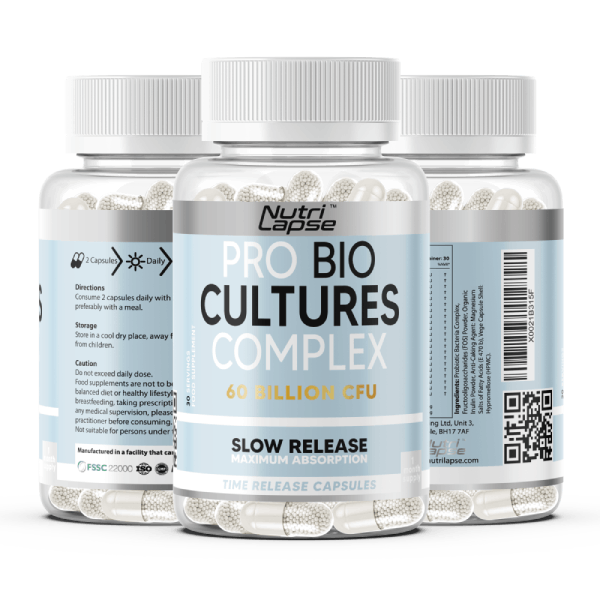
Magnesium: The Key to Better Sleep and Muscle Recovery
In today’s fast-paced world, getting quality sleep and maintaining optimal muscle recovery can be challenging. Whether you’re an athlete looking to improve performance, someone managing daily stress, or simply seeking better sleep, magnesium might just be the missing link. This essential mineral plays a vital role in relaxation, sleep quality, and muscle recovery, making it an unsung hero for overall health and wellness. Let’s explore how magnesium can be a game-changer for both sleep and muscle recovery.
What is Magnesium?
Magnesium is a crucial mineral involved in over 300 biochemical reactions in the body. It’s essential for nerve function, regulating muscle contractions, supporting immune health, and maintaining energy levels. Despite its importance, many people are unknowingly deficient in magnesium due to dietary habits, stress, and lifestyle factors.
Magnesium and Sleep: The Connection
Promotes Relaxation
Magnesium helps activate the parasympathetic nervous system, which is responsible for calming the body and mind. It regulates neurotransmitters that promote relaxation, such as gamma-aminobutyric acid (GABA). GABA plays a crucial role in quieting brain activity and preparing the body for rest. Low magnesium levels can lead to heightened anxiety and stress, making it difficult to unwind at the end of the day.
Improves Sleep Quality
Research has shown that magnesium supplementation can improve sleep quality, particularly in individuals with insomnia or sleep disturbances. By enhancing the body’s production of melatonin, the hormone that regulates sleep-wake cycles, magnesium helps people fall asleep faster and enjoy deeper, more restorative sleep. If you find yourself waking up frequently at night, a magnesium deficiency might be a contributing factor.
Reduces Insomnia Symptoms
Insomnia often stems from an overactive nervous system and the inability to relax. Magnesium helps to counteract these issues by lowering cortisol levels (the stress hormone) and supporting muscle relaxation. As a result, magnesium supplements are often recommended to reduce symptoms of insomnia and promote a more restful night’s sleep.
Magnesium for Muscle Recovery and Performance
Reduces Muscle Cramps and Spasms
One of the most common symptoms of magnesium deficiency is muscle cramps and spasms. Magnesium regulates muscle contractions, ensuring that muscles relax properly after they contract. This is especially important for athletes or individuals who engage in regular physical activity. A lack of magnesium can lead to painful cramps, particularly during exercise or at night. By ensuring adequate magnesium levels, you can reduce the frequency of cramps and promote better muscle function.
Supports Muscle Recovery
After intense physical activity, muscles need time to recover and repair. Magnesium plays a critical role in this process by reducing inflammation and supporting protein synthesis, which is necessary for muscle repair and growth. It also helps prevent the buildup of lactic acid, which can cause muscle soreness and fatigue. For athletes or fitness enthusiasts, magnesium can speed up recovery time and enhance overall performance.
Boosts Energy Production
Magnesium is essential for converting food into energy by activating adenosine triphosphate (ATP), the body’s main energy source. Proper magnesium levels ensure that muscles have the energy they need to function efficiently during exercise and recover afterward. Without enough magnesium, your muscles may feel weaker, and your endurance may decrease, affecting both performance and recovery.
How to Increase Magnesium Intake
Dietary Sources
The best way to boost your magnesium intake is through a balanced diet. Foods rich in magnesium include:
Dark leafy greens (spinach, kale)
Nuts and seeds (almonds, pumpkin seeds)
Whole grains (brown rice, oats)
Legumes (black beans, chickpeas)
Avocados
Dark chocolate
Incorporating these foods into your daily diet can help you maintain healthy magnesium levels and support sleep and muscle recovery.
Magnesium Supplements
If you’re not getting enough magnesium from your diet alone, supplements can be an effective option. Magnesium supplements come in various forms, such as magnesium citrate, glycinate, and oxide. Magnesium citrate and glycinate are often recommended for better absorption and are gentler on the digestive system. It’s important to consult with a healthcare provider before starting any supplement regimen to determine the right dosage for your needs.
Magnesium Topical Applications
Another popular method of increasing magnesium levels is through topical applications, such as magnesium oils or lotions. These can be applied directly to sore muscles or before bed to promote relaxation. Magnesium baths, using Epsom salts, are also a great way to combine relaxation with muscle recovery.
The Bottom Line
Magnesium is a powerhouse mineral that plays a vital role in both sleep quality and muscle recovery. Whether you struggle with insomnia, frequent muscle cramps, or slow recovery after workouts, ensuring your body has enough magnesium can make a significant difference. By incorporating magnesium-rich foods into your diet or considering supplementation, you can support relaxation, enhance your sleep patterns, and improve your muscle function and recovery.
If you’re looking to optimize your health, don’t overlook the importance of magnesium – it could be the key to better sleep, faster recovery, and overall well-being.
Related Articles



